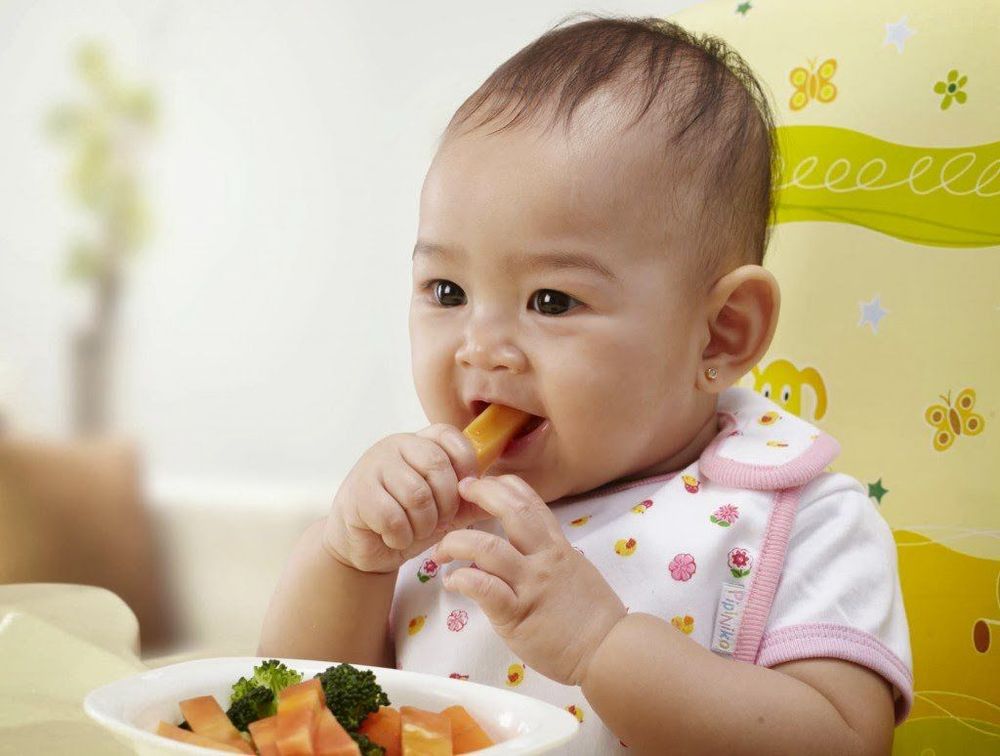This is an automatically translated article.
Many parents think that boiling carrots for baby food is the fastest way to introduce them into their child's diet. However, it is necessary to pay attention to the time as well as the processing method to suit each stage of the child's development.
1. Benefits of carrots for children
1.1. Healthy Body Cells Carrots contain a number of properties that directly affect cell growth mechanisms. This ensures that the growth of cells is unchecked and unchecked. On the other hand, in areas where rapid cell growth is required, such as trauma or wounds, carrots help aid in the healing of those areas.
1.2. Better liver function In the event of any harmful chemicals entering the body, the main organ affected is the liver. Carrots contain properties that not only support the body's cells but also help protect the liver from the effects of those harmful chemicals.
1.3. Boosts Immunity The most important thing a baby requires is a strong immune system. Lymph cells and platelets in the blood play an important role in keeping the balance of the immune system and ensuring its strength. Carrots help to improve the number of these entities, strengthen the immunity of children.

Cà rốt giúp cải thiện số lượng lớn các tế bào bạch huyết và tiểu cầu trong máu
1.4. Better Circulation The circulatory system not only transports oxygen through the heart and blood vessels, but also helps remove toxins from the body, thanks to the kidneys. Carrots contain flavonoids, which are micronutrients. These directly improve the health of the heart and kidneys, helping them to function better.
1.5. Improve eyesight Vitamin A and beta-carotene are two essential factors for good vision development. These affect the development of the retina and help maintain it in proper condition. Carrots contain both of these elements in good amounts, which help maintain clear and sharp vision.
2. Instructions for cooking baby food with pureed carrots
Carrots are a food that is full of energy and especially beta-carotene nutrients are known to play a very good role for young children. However, mothers need to remember that babies have to wait until 6 months or older to start introducing foods made with carrots. The reason is because the nitrate content in carrots is high and it is absolutely not good or can affect children.
One point that mothers need to keep in mind when introducing carrots to their children's diets is to use frozen carrots instead of using fresh carrots. Baby weaning with carrots will be started for children from 6 to 8 months old or possibly older children. For children at this age, they will need to cook baby foods with carrots and the composition is about 3 cups.

Beta-caroten trong cà rốt có vai trò rất tốt cho trẻ nhỏ
Ingredients:
454g prepackaged frozen carrots 1 cup full fat Breast milk or formula if additional is needed Preparation:
Carrots are cooked directly from prepackaged frozen carrots. The carrots are pureed, then breast milk or formula or water is added to create a smooth consistency for the carrot puree. After the preparation is complete, the finished carrot puree is stored in the refrigerator. It can even be divided into individual meals for frozen storage. Root foods can increase in size. Therefore, more fat will be needed in the carrot puree mixture to increase the smoothness of the carrots when thawed. Nutrition facts of carrot puree with 2 teaspoons (28.3 grams): 17 calories, 1 gram fiber, 30% vitamin A, 50% manganese, 10% potassium.
3. Some precautions to take when giving carrots to children
Allergic reactions : It is not likely that the child will be allergic to carrots. However, in the most rare cases, if your child starts to show signs of vomiting and diarrhea, shortly after eating carrots, this could be a sign of a carrot allergy. Always make sure carrots are clean and healthy before giving them to your baby. Appropriate age: Avoid giving your baby carrots or any solid foods until they are at least 8 months old or so. A baby's digestive system needs time to develop strength and be able to successfully digest solid foods. Proper form: Babies can't start eating raw carrots from the start. When introducing carrots to children, it is appropriate to peel the carrots, grate them into small pieces, and steam or boil them until they are soft. This results in carrots that can be mashed to a puree, which can then be given to babies. For extra flavor, it's best to add salt instead of sugar because babies can easily be attracted to sugar instead of carrots' nutrients. The Right Amount: Everything is healthy to consume only when it is in moderation. Feeding a baby a lot at the start can lead to digestive problems for the baby. For the early stages, carrots can be introduced into a child's diet by mashing them and pureeing as an evening snack. The amount here should only be as small as a teaspoon or so. Keep it in this small amount for a few days to a week and observe your baby's reaction. If there are no problems and he starts asking for more, you can gradually increase it to two spoons, then three spoons, and so on. You should not completely replace his diet with this puree.

Cha mẹ cần áp dụng một số biện pháp phòng ngừa khi cho trẻ ăn cà rốt
To sum up, the nutritional benefits that carrots provide to babies are unbelievable and it makes perfect sense to make it part of your baby's diet as soon as possible. It is also important to pay attention to feeding your baby carrots in the right form. Carrot purees or infant carrot juice are great ways to introduce them in the right context of taste and nutrition. As your child grows and starts teething, he or she will also start to enjoy small pieces of carrot in his diet.
In addition to focusing on children's nutrition, parents should note that children in the period from 6 months to 3 years old are prone to problems with the respiratory system, respiratory infections, diseases. skin problems and gastrointestinal infections...Parents need to pay special attention to caring for and providing adequate nutrition for children.
The period of baby eating solid foods is an extremely important period to help children develop comprehensively. Children who do not eat properly are at risk of micro-mineral deficiencies, causing anorexia, growth retardation, malabsorption, etc. If they notice the above signs, parents should supplement their children with supportive products. The supplement contains lysine, essential micro-minerals and vitamins such as zinc, chromium, selenium, and B vitamins to help fully meet the nutritional needs of children. At the same time, these essential vitamins also support digestion, enhance nutrient absorption, help improve anorexia, and help children eat well.
Parents can learn more:
Signs of zinc deficiency in children
Micronutrient deficiency and failure to gain weight in children
Please regularly visit Vinmec.com website and update useful information to take care of your child. Take care of the baby and the whole family.
Reference source: babycenter.com













